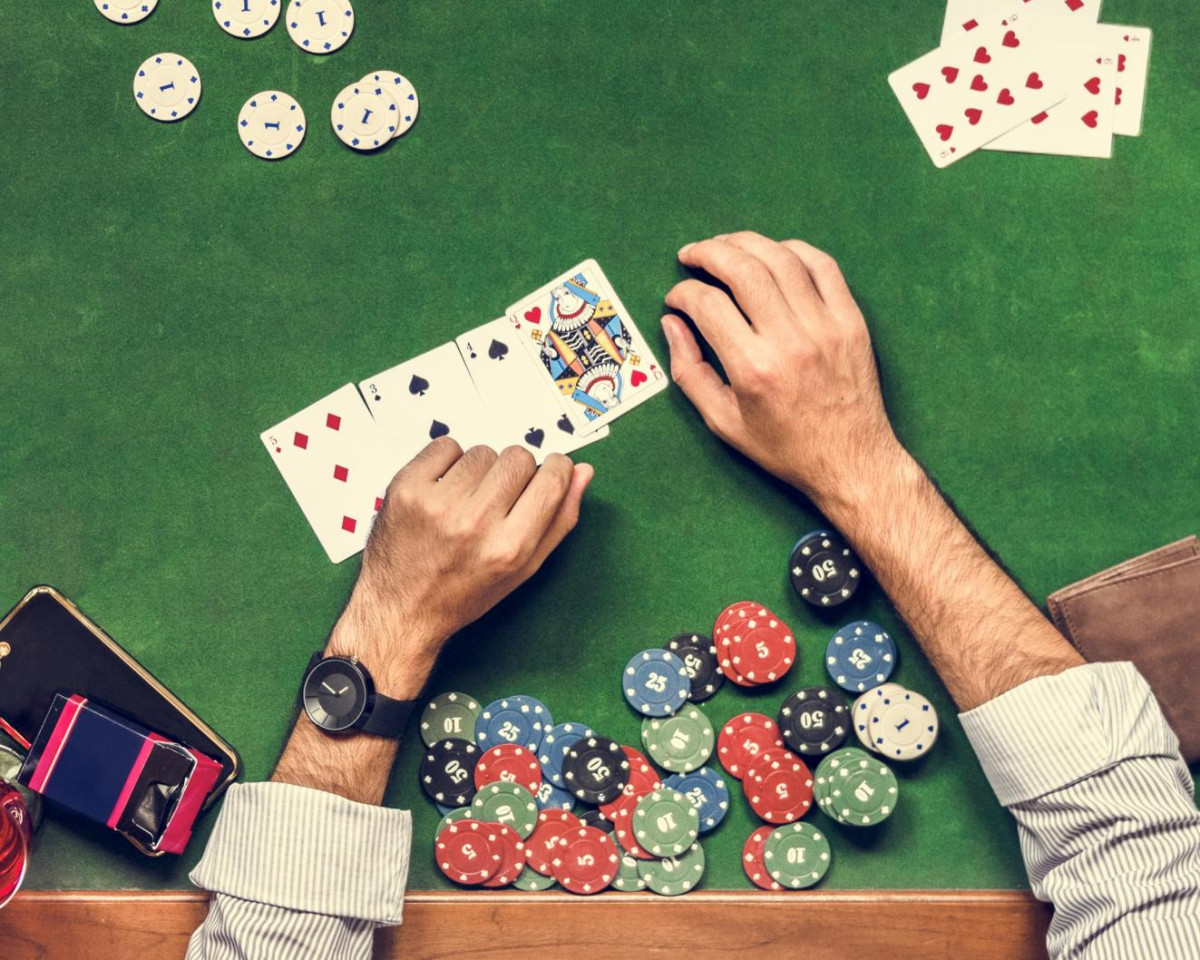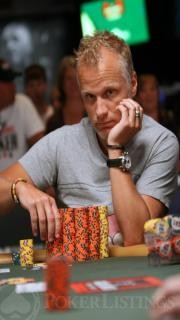Worst Luck In Poker

- Worst Luck In Poker Real Money
- Worst Luck In Poker Tournaments
- Worst Luck In Poker Tournament
- Worst Luck In Minecraft
The key is to learn how to handle situations like this, and to make sure that your game is not adversely affected by factors outside of your control.
Running bad can take many forms. You can constantly get your money in with a two pair against a flush draw and lose. You can constantly run your KK into AA. Or you can experience the secret kind of run bad where you flop a set against QQ, but the turn card is a King and now QQ doesn’t pay you off. A third issue with poker — or any game involving chance, for that matter — is that reality is generally worse (and often way worse) than our intuitive expectation. This misconception is not due to. A “bad beat” is the name given to an occurrence in poker where a significantly worse hand beats a better one through fortune alone. The person suffering the “bad beat” plays the hand correctly, gets their money into the pot when they were a long way ahead, but is still beaten by the turn of a card beyond the player’s control.
The short-term effect of luck in poker – both good and bad – is known as “variance”. Good players accept variance as part of poker, and work on reducing its influence on their own game.
- There are really three types of bad luck in poker. There is getting your money in the the best hand, only to see the cards screw you (a bad beat); getting your money in with the worst hand because.
- Luck in poker is short term in nature. While a downswing can be brutal, the upswings will eventually compensate. What holds players back is blaming ‘bad luck’ as an excuse not to work on their game the chance element evens out in the end, get over it. Realization #2 – Too Many Donks Are Impossible To Beat.
The Bad Beat
A “bad beat” is the name given to an occurrence in poker where a significantly worse hand beats a better one through fortune alone. The person suffering the “bad beat” plays the hand correctly, gets their money into the pot when they were a long way ahead, but is still beaten by the turn of a card beyond the player’s control.
This is only the case when you have a hand that is a clear favorite, and gives your opponent very little chance of catching up. Some inexperienced players will wrongly recall a “bad beat” where their hand was only a marginal favourite. See the following examples:
Example: A genuine bad beat
- Player 1 has A♥A♦. Player 2 has A♣K♥. Both players are all in on a flop of 7♣J♥J♠ Player 1 is 98% favourite.
- Player 2 can only win if the two remaining cards are either the two remaining kings to make a full house, or a queen and a ten to make a straight. The pot would be split if the two remaining cards are both jacks to make four-of-a-kind jacks with an ace-kicker.
- If the turn is K♠ and the river is K♠, then Player 2 wins the pot and Player 1 can legitimately claim a bad beat!
Example: Not such a bad beat
- Player 1 has 7♠4♠ in late position and pushes all-in before the flop. Player 2 has a very good hand in A♥K♣ and calls.
- The board runs out 3♦7♣9♥10♥Q♠. Player 1 wins the hand with a pair of sevens.
Despite A♥K♣ being a strong hand, it is only a 60% favourite before the flop, and will lose four times out of ten. This isn’t enough to constitute a bad beat.
It is interesting to note that players often remember bad beats more than those situations where luck was on their side.
There is also a common misconception that there are more bad beats dealt online than in the live game, but this is not true. Statistically speaking, they occur at the same frequency whether you play online or in a casino, but because you can play more hands per hour online, the probability that players will experience what they perceive to be bad beats will inevitably increase.
Reflecting on Bad Beats
The best way to recover after a bad beat is to remember that you will make money from your opponent in the long run if they keep making the same bad plays. Instead of getting angry, exploit their weakness for maximum profit.
The laws of probability and mathematics mean that the player who keeps putting all of their chips at risk with the worse hand will lose in the long run, which actually makes that player the kind you want at your table. As the author Matthew Hilger said: “Bad beats are a good poker player’s friend.”
Downswing
A downswing describes a short period in your poker career when you are making losses despite playing correctly. The cards do not fall in your favor and you are often losing pots you were favorite to win. At times like this, it is vital to take note of the following advice:
1.Beware of Tilt
“Tilt” is the emotional state that makes it impossible for you to play your best poker. It can be triggered by a downswing and leads to even more losses as you abandon correct strategy and begin making plays you know to be poor. If you find yourself emotionally affected while playing poker, it is encouraged to take a break as you recover to an optimal state to continue playing.
2.Manage Your Bankroll Carefully
Your “bankroll” is the amount of money you have set aside away from personal finances to play poker. Solid bankroll management is vital during a downswing, as there is a risk that you could lose your entire bankroll by making foolish mistakes. If you are suffering a downswing, you should move down a limit or play fewer tables in order to avoid bigger losses.
3. Avoid Making Irrational Changes to Your Game
Worst Luck In Poker Real Money
A downswing may cause a loss of confidence and prompt you to doubt your own abilities. It may make you doubt your game, resulting in you making changes to your usual style. This can often be even more harmful and should be avoided in most cases, even if it seems to be working in the short term. By all means expand your knowledge of the game by learning new tactics and switching gears when necessary, but avoid abandoning the proven basic strategies, such as using a tight-aggressive playing style.
Upswing

Upswing is the opposite of a downswing; a period of time where you experience an incredible run of good cards at the right time, leading to above average profits. When things are this good, it makes playing poker fun and gives your game a confidence boost.
Worst Luck In Poker Tournaments
Upswings can also be dangerous, however. They can cause you to start overestimating your abilities, play too many hands and bluff too often. It is easy to start thinking that you can do no wrong, and start making mistakes without realising them. This too should be avoided.
The most damaging mistake to make during an upswing is to start playing at a higher level, simply because you have made a significant amount of money in a short space of time. This can be disastrous, as your good run can end at any moment. Even worse, you could quickly risk losing your bankroll by playing out of your depth.
Bankroll management is therefore just as vital during an upswing as it is during a downswing.
Worst Luck In Poker Tournament
Conclusion
Luck is a factor in poker over which we have no control. It can play a big role in the short-run, but the better player will always prevail in the long game. The ability to handle bad beats, downswings, upswings and bankroll management are skills that will serve you well long term.

Worst Luck In Minecraft
Test your knowledge with our short quiz below